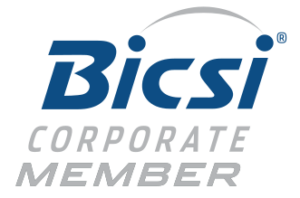Every modern business needs to share certain applications and datasets with multiple departments and employees within the company. Such applications and datasets require convenient and accessible storage so all the relevant departments and employees can get work done.
Traditionally, businesses use on-site servers or data centers for storage and connect them to their business network, so everyone can access and retrieve what they need. But rapid digital transformation and modern cloud technology are changing how businesses store, access, and use their applications and data.
Let’s discuss cloud vs. on-premise data centers for business, their similarities, and difference to help you choose the right one for your business requirements.
Of course, you should always consult professional experts like Communications Solutions Inc. in Jacksonville, Florida, for all your business network, cloud services, and data center needs.
Cloud vs. On-Premise Data Centers for Business
An on-premise or on-site data center is a data center that is physically located within your business premises. It can consist of a single powerful server or several servers housed in a server room in your business building.
An in-house IT team typically maintains the data center and regularly updates its software. On-premise data centers can also deploy a private cloud hosted by a third-party service provider to overlook and maintain the private cloud.
Conversely, a cloud data center is owned and operated by a third-party service provider, and you can pay to acquire their cloud services for your business. Popular cloud service providers like IBM Cloud and Amazon Web Services (AWS) typically offer two types of cloud data centers.
The first is a public cloud data center, where your business shares the resources with other businesses and organizations. The other is a private cloud data center, where you do not share resources with other organizations.
While such cloud service providers offer flexible pay-as-you-go cloud services, the second type of cloud data center is understandably more expensive because you are not sharing resources with anyone.
There is no one-size-fits-all solution when choosing cloud or on-premise data servers for your business. What works for one business may not be ideal for another, and you need to first understand each data center’s key differences, similarities, and advantages and disadvantages.
Let’s go through them to help you decide what to deploy for your business.
Key Similarities
The main purpose of both cloud and on-premise data centers is to implement an agile IT infrastructure that increases efficiency while reducing maintenance and associated costs. Even though they operate differently, there are some key similarities.
· Advanced Technologies
Cloud and on=premise data centers are both dependent on a variety of advanced technologies for efficient workflow and security. Technologies such as operating system (OS) software, data center management platforms, and APIs work together to ensure everything runs smoothly.
· Advanced Automation
Both data centers can provide advanced automation for your business’s IT infrastructure. They help reduce repetitive and manual processes and streamline workloads to reduce costs.
Key Differences
There are quite a few differences between cloud and on-premise data centers.
· Deployment
Naturally, on-premise data centers require on-premise or on-site hardware deployment at your business location. Cloud data centers deploy hardware and other resources at various locations.
· Costs
Cloud data centers are relatively less expensive than on-premise ones that need large upfront investments, running costs, and maintenance costs. Cloud service providers offer flexible subscription plans that use a pay-as-you-go payment model, which means you only pay for the services you use.
· Security
On-premise data centers give you the benefit of having full control over the information or data stored in your data center. You can implement advanced cyber security measures to safeguard your sensitive business data.
Whereas with cloud data centers, depending on the service provider and subscription plan, you may not have direct control over your business data. For example, your data may be more susceptible to cyber threats in shared plans where you share resources with other organizations.
Of course, no cyber security measure is fool-proof, and malicious actors can breach both cloud and on-premise data centers.
· Flexibility and Scalability
While you can always expand, upgrade, or move your on-premises data centers, cloud data centers are always more flexible and scalable because they have a more established and much larger network of resources.
· Compliance
On-premise data centers can easily be altered or modified to meet compliance requirements. However, this is not the case with cloud data centers. The simple fact that cloud data centers are deployed off-premise and do not give direct control over the data violates most compliance requirements.
Which Is Ideal for Your Business
With all the similarities and differences between cloud and on-premise data centers in mind, you should be able to make the right choice that suits your business needs. It often comes down to several key things like requirements, budget, future goals, and personal preference.
However, if your business operates in a heavily regulated industry, an on-premise or hybrid data center may be your best option. Small businesses with smaller budgets should consider cloud data centers for their low costs, greater flexibility, and improved scalability.
Conclusion
We hope you have a much clearer idea of which data center infrastructure you should choose. However, we always recommend consulting expert professionals like Communications Solutions Inc. in Jacksonville, Florida, before making your decision.
If you want to learn more about cloud vs. on-premise data centers for business, cloud computing, or if you want the most comprehensive professional IT and cloud solutions for your business in Florida, Contact Us today.



